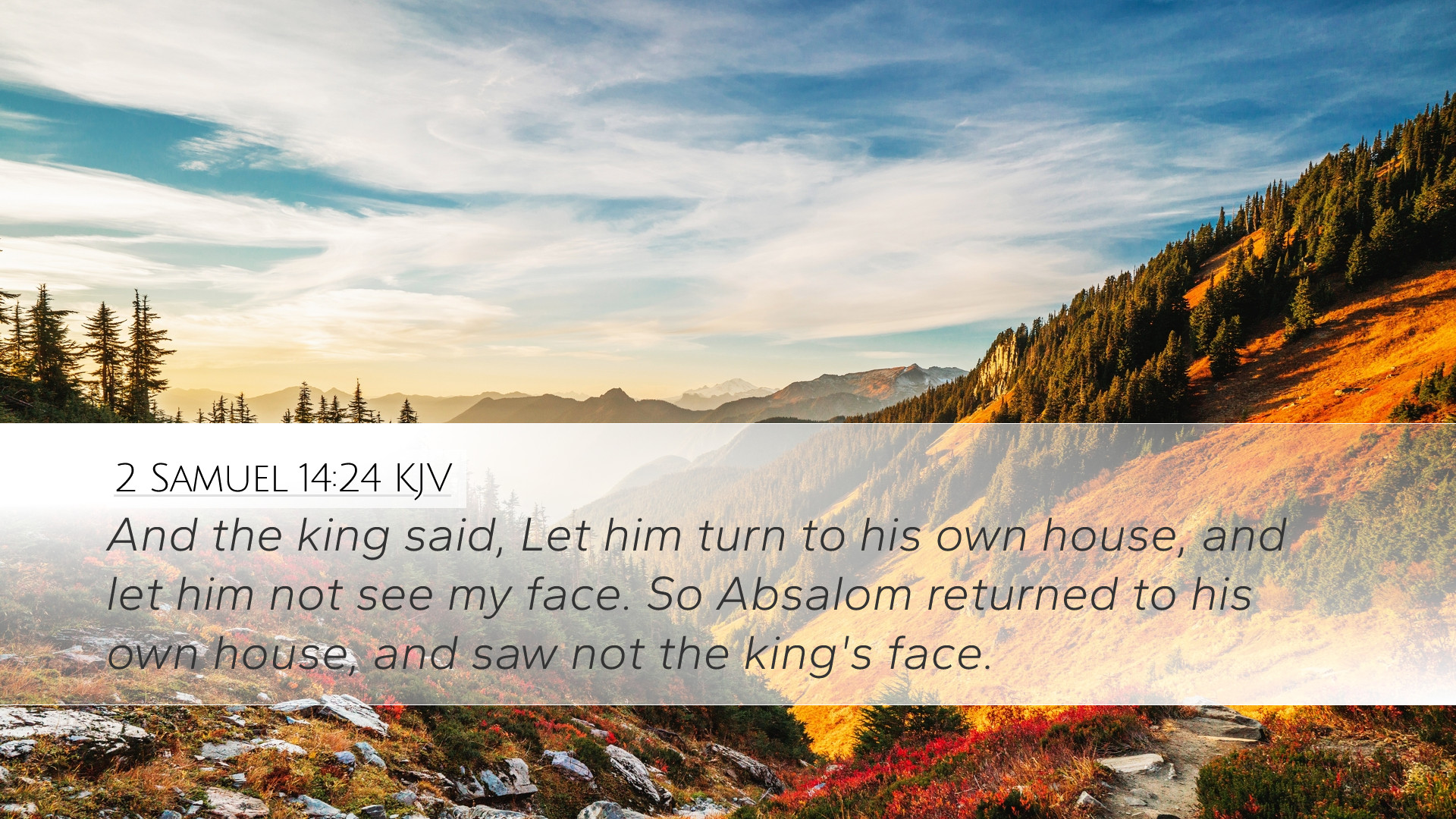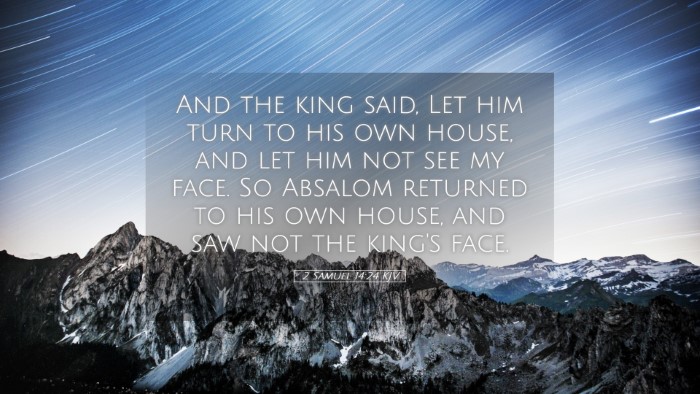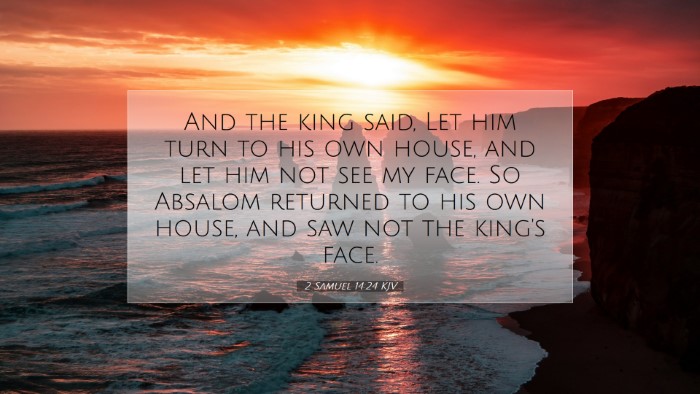Commentary on 2 Samuel 14:24
Bible Verse: 2 Samuel 14:24: "And the king said, Let him return to his own house, and let him not see my face. So Absalom returned to his own house, and saw not the king's face."
Introduction
This verse presents a crucial moment in the narrative of King David's family, specifically concerning Absalom's return to Jerusalem. The complex dynamics of familial relationships, the consequences of sin, and the nature of forgiveness are richly interwoven within this brief passage. This commentary aims to explore these themes using insights from public domain commentaries to provide depth and meaning.
Contextual Analysis
Understanding the context is key to interpreting 2 Samuel 14:24. Prior to this verse, Absalom had killed his brother Amnon due to the latter's assault of their sister Tamar. Following Amnon's death, Absalom fled into exile, triggering a series of events that unraveled David's domestic life. David's initial grief and subsequent actions shape this narrative.
The Emotional Landscape of David
David is portrayed as a grieving father who has lost a son to violence and betrayal. His feeling of lost authority and familial disarray is evident:
- Matthew Henry notes that David, while desiring to see Absalom, also feared the consequences of Absalom's actions, reflecting a complex emotional state.
- Albert Barnes emphasizes that David’s decision to not let Absalom see his face suggests a feeling of reproach and the need for distance from Absalom’s sin.
Analysis of Key Phrases
“Let him return to his own house”
This directive from David encapsulates the nuances of reconciliation and separation in human relationships. David's command reflects a hope for restoration yet acknowledges the reality of the situation:
- Adam Clarke reflects on the paradox of Absalom's return; he is allowed back to his home, yet he is still exiled from his father’s presence, symbolizing conditional forgiveness.
- Henry points out that this decision may also symbolize David's attempt to avoid further conflict within his household.
“And let him not see my face”
This phrase is powerful in its implications. It suggests a barrier between father and son that is not easily broken. The implications of this separation are profound:
- Barnes argues that this reflects a part of David's own punishment for his earlier sins, particularly against Uriah, which haunt his administration and family dynamics.
- Clarke highlights that this refusal to embrace Absalom speaks to the consequences of Absalom's actions — the family will have to bear the scars of sin.
Theological Insights
From a theological perspective, this passage embodies multiple layers of meaning:
- Forgiveness and Consequences: The refusal to see one’s father represents more than mere familial strife; it speaks to the enduring consequences of sin and the difficulty of obtaining true reconciliation in the face of grievous wrongdoing.
- Divine Parallels: Some scholars suggest that this father-son relationship reflects broader themes in the Old Testament regarding God's justice and mercy towards humanity.
The Role of Time in Healing
Time plays a critical role in the healing process depicted in this verse. Though Absalom is physically back in Jerusalem, the emotional and spiritual distance remains palpable:
- Henry asserts that time is often necessary for issues to be resolved; David may believe that distance will yield a softening of heart.
- Barnes notes the importance of having time to reflect on the consequences of one’s actions before reconciliation takes place.
Conclusion
2 Samuel 14:24 serves as a poignant reminder of the complexities of sin, forgiveness, and the restoration of relationships. David’s command to Absalom encapsulates the weight of betrayal and the challenges of parental love intertwined with justice. This verse invites pastors, students, theologians, and Bible scholars to ponder the intricate dynamics of our relationships under the light of divine grace and human frailty.


